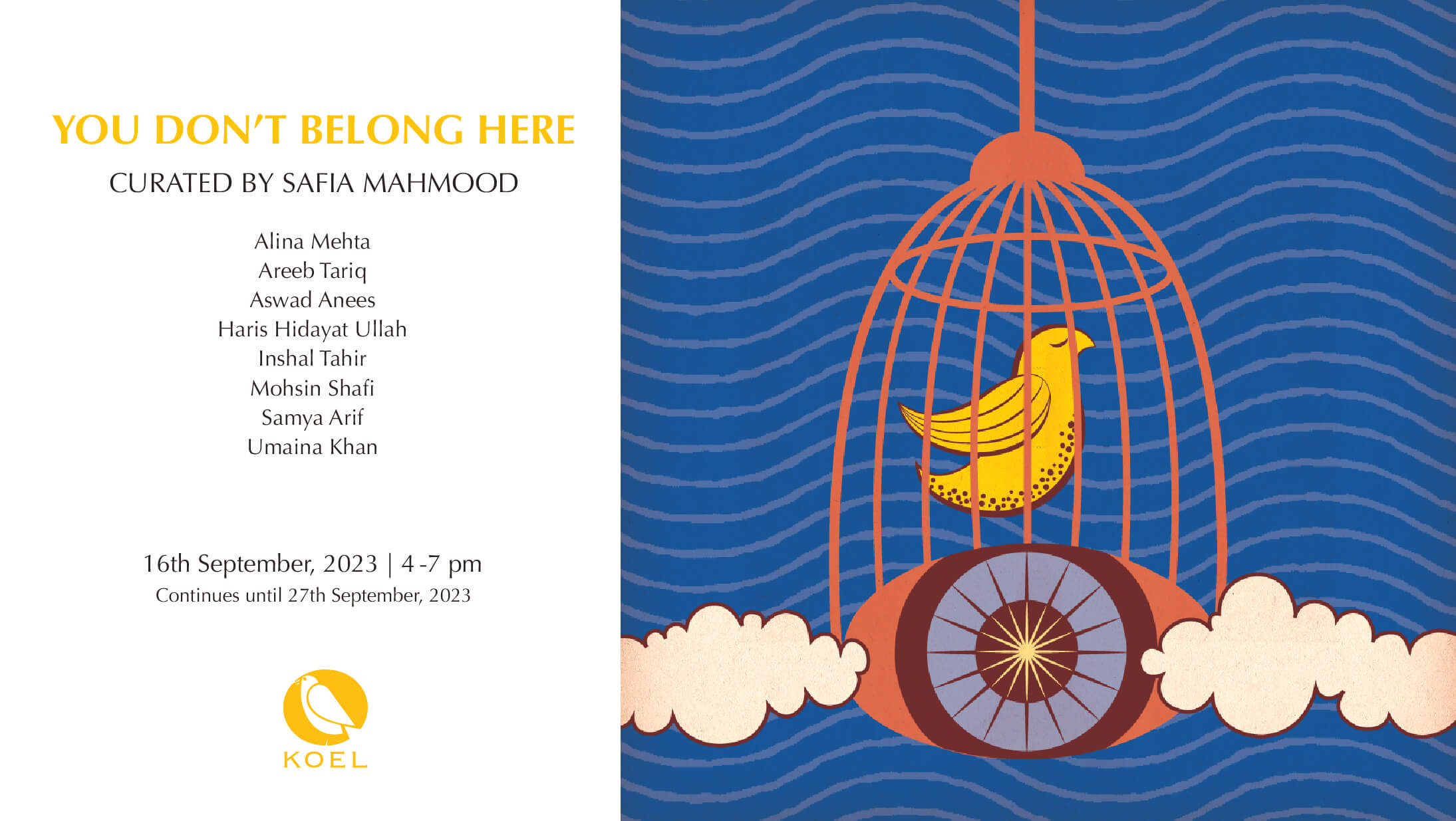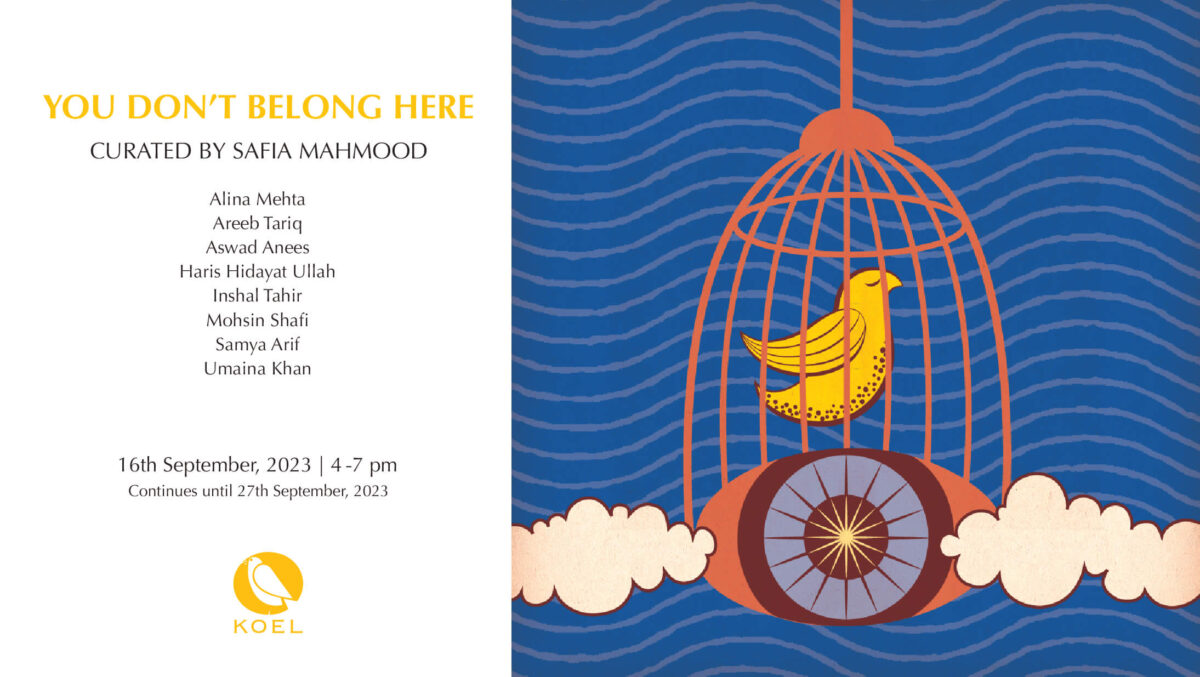YOU DON’T BELONG HERE
Overview
The exhibition You Don’t Belong Here is an active commentary on how different bodies and communities are sidelined from the mainstream and forced into the margins on a daily basis, creating a sense of unbelonging. Using the genres of film, conventional, unconventional and contemporary mediums of art, we hope to create an experience to mimic moments of unbelonging. The idea is to make you – a spectator hailing from different spaces in society – viscerally feel a ‘pinch’, a sense of unbelonging; a sense of being gazed at from a collective other who holds more power than you in this instance. In some ways, this exhibition is an empathy exercise, but it is also more. It is an experience: at least one form of experience felt by someone who is actively or passively treated as the other. This could be in one moment in their life or every day. As able humans, we are designed to use our senses to create ‘familiar’ and concurrently, an ‘unfamiliar’, by using primarily our sense of sight. We perceive things and people: we use our gaze to determine who belongs with us and who does not. In a country like Pakistan that was created in the name of Islam, there exists a privileged group of people who believe they belong more than others based on different elements of their identity. At times, they think it is only them who belong. It is in the face of this belonging that one can construct a list of people who allegedly don’t: anyone who deviates from the heteronormative values of an Islamic society which is deeply patriarchal, becomes the other. What is interesting is the ambiguous category of the other in Pakistan can mean anything. No one can ever truly belong at all times, unless they neatly fall into the intersecting sex, sexuality, class, caste, ethnic and linguistic category of what apparently comprises a ‘majority.’ In this vein, we hope to invite you to pause: to allow the experience today, which invokes not just the visual but also the oral and the touch, to construct in some ways an experience of someone who walks this land without holding the security of a ‘majority’ citizen. A series of guiding questions we wish for you to hold close during today’s experience are: What do you feel? What irks you? What becomes a point of departure for you in today’s curated experience? Is there something new this exhibition offers to you? How does it feel like you are a part of something that doesn’t quite accept you, yet also expects your presence? How does it feel to be invited into a room that declares, quite literally, that you whoever you are – don’t belong here. You are not an outsider in what is happening today, here or outside these walls. We hope this experience helps bring awareness to its spectators, which is always a first step to something larger than oneself. Leave us with your thoughts.
Curator, Safia Mahmood


